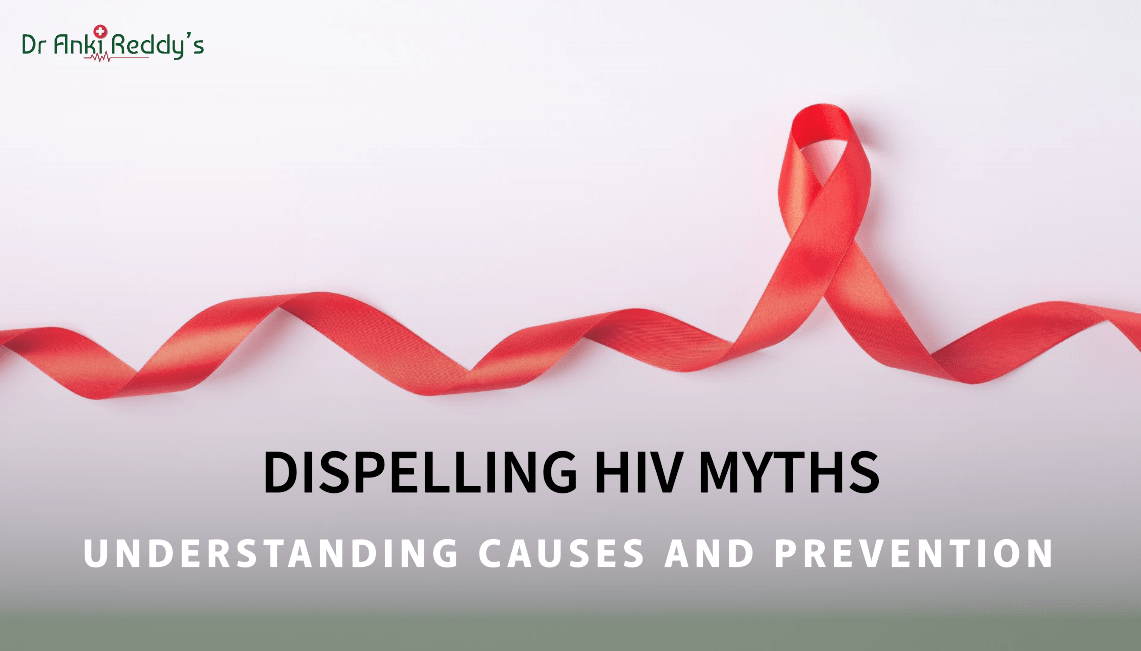HIV Causes, Symptoms and Prevention: Common Myths vs. Facts
HIV has indeed always been wrapped up in misinformation and also stigma. People hold wrong views about this virus. It is important to know the HIV causes and thus avoid a few misconceptions about HIV and how those who are living with it to lead very fulfilling and also productive lives.
When left untreated, HIV does cause acquired immune deficiency syndrome (AIDS). This virus does attack the immune system and also makes it harder for one’s body to fight infections as well as cancer. This does occur on account of the virus infecting and killing T cells, the cells that help protect the body from illness.
Symptoms of HIV
- Chills
- Fatigue
- Fever
- mouth ulcers and many more.
These symptoms do tend to resolve after a week or a month.
HIV Causes
HIV is rather transmitted when bodily fluids containing the virus are shared between people which include:
- blood
- semen
- pre-seminal fluid
- rectal fluids
- vaginal fluids
- breast milk
Myths about HIV infection
A lot of the stigma surrounding HIV is due to misinformation or people not completely understanding the virus affecting the body.
Myth 1: The person can tell that someone is living with HIV by looking at them
“No, it is not possible to identify people who are living with HIV by mere physical appearance. The person cannot identify HIV-positive people by the symptoms they have. They may not have any specific symptoms or even have symptoms suggestive of other health conditions.
Myth 2: HIV only affects certain sexual orientations
Having another sexually transmitted infection (STI) like syphilis, herpes, chlamydia, gonorrhea, and bacterial vaginosis can be thought of.
Sharing contaminated needles, syringes as well as other injecting equipment and drug solutions when injecting drugs, receiving unsafe injections, blood transfusions, and tissue transplantation can also be cause.
Procedures that do involve unsterile cutting or piercing as well.
Accidental needle stick injuries include those among healthcare workers.
Having sex while intoxicated can also put the person at risk of contracting HIV. The reasoning behind this is when people are drunk or high, they are more likely to engage in riskier sexual activities.
Biologically speaking, people having female genitalia are more at risk for contracting HIV via heterosexual encounters as of exposure to semen.
Myth 3: HIV affects childbirth and fertility
HIV does not affect fertility and childbirth, especially for women who are indeed receiving appropriate and also adequate treatment. Yet, not taking medications while pregnant can lead to mother-to-child transmission (MTCT). Pregnant people who are living with HIV need to continue treatment or medications as recommended.
Myth 4: If on PrEP, the person does need to use condoms
Pre-exposure prophylaxis (PrEP) does help protect people who might be at high risk for HIV via sex or injection drug use.
Myth 5: If both partners are HIV-positive, there is no need for condoms
This is not true at all. People who are living with HIV can still be at risk for other kinds of STIs (also known as sexually transmitted diseases, or rather STDs).
Skipping condoms is not suggested as it means the risk of developing other STIs such as gonorrhea, chlamydia, trichomoniasis, syphilis, or even herpes.
Preventing complications
Prevention is indeed the key to extending the life of a person with HIV.
It is no doubt very important to manage a person’s viral load with HIV medications and also take additional precautions, like:
- receiving vaccinations for potential opportunistic infections
- identifying cum limiting exposure to any sort of environmental factors that could lead to infection
- avoiding foods that have a high risk of contamination, like undercooked eggs and also meat, unpasteurized dairy as well as fruit juices, and also raw seed sprouts
- not drinking water straight from a lake or even a river, or unfiltered tap water in of course certain countries
- asking a doctor about relevant vaccinations.
Conclusion
HIV causes cannot be overlooked.









There are no comments